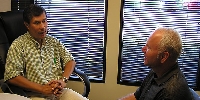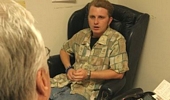I am often invited to speak to physicians and other professionals and laymen about medical malpractice issues. On such occasions, I share the same information I provide to every client who seeks my advice and assistance with a potential medical malpractice claim: I define “medical malpractice” for them. However, in my 21 years of experience, I have found that the best way to tell people what medical malpractice is, is to tell them what medical malpractice is not.
Medical malpractice is not that a doctor made a mistake. Doctors are human. They are not all-knowing, they are not all-powerful, and they are not perfect. They are “allowed” to make mistakes.
Medical malpractice is not that the patient had a bad result — even if that bad result was unexpected. Every day in every hospital, patients suffer complications, setbacks, even death. Such things may occur without any negligence by physicians.
Medical malpractice is not that another doctor would have done things differently. On many occasions, doctors may disagree about the best approach to a patient problem. This does not mean one of the doctors is negligent. It does not even mean one of the doctors is wrong. If we expect medical science to advance and improve, we have to encourage doctors to disagree and to develop new approaches.
Rather than a mistake, a bad result, or a difference of opinion, medical malpractice (negligence) occurs when a doctor does something that is unreasonable; something no reasonable doctor would have done under the circumstances. It may be either an action or an omission, but there will be no case of medical malpractice unless the doctor has behaved unreasonably.
If we can prove that the doctor’s behavior was unreasonable, we must also prove that the injury or death would not have occurred if the doctor had acted reasonably. This can be difficult to prove, especially since there is almost always an underlying disease or injury for whichthe doctor is not responsible.
Proof that the behavior was unreasonable and proof that the unreasonable behavior caused the injury or death is made through expert witnesses. Neither the patient nor the patient’s family may testify that a doctor has been negligent. As a medical malpractice attorney, I strive to get the very best experts available, who are leaders in their field, to explain proper medical standards to a jury and to demonstrate how deviating from those standards has damaged our clients. And I strive to maintain a reputation of turning down frivolous and questionable cases and limiting our practice to cases of merit, supported by qualified and respected experts.
?v=20" "



